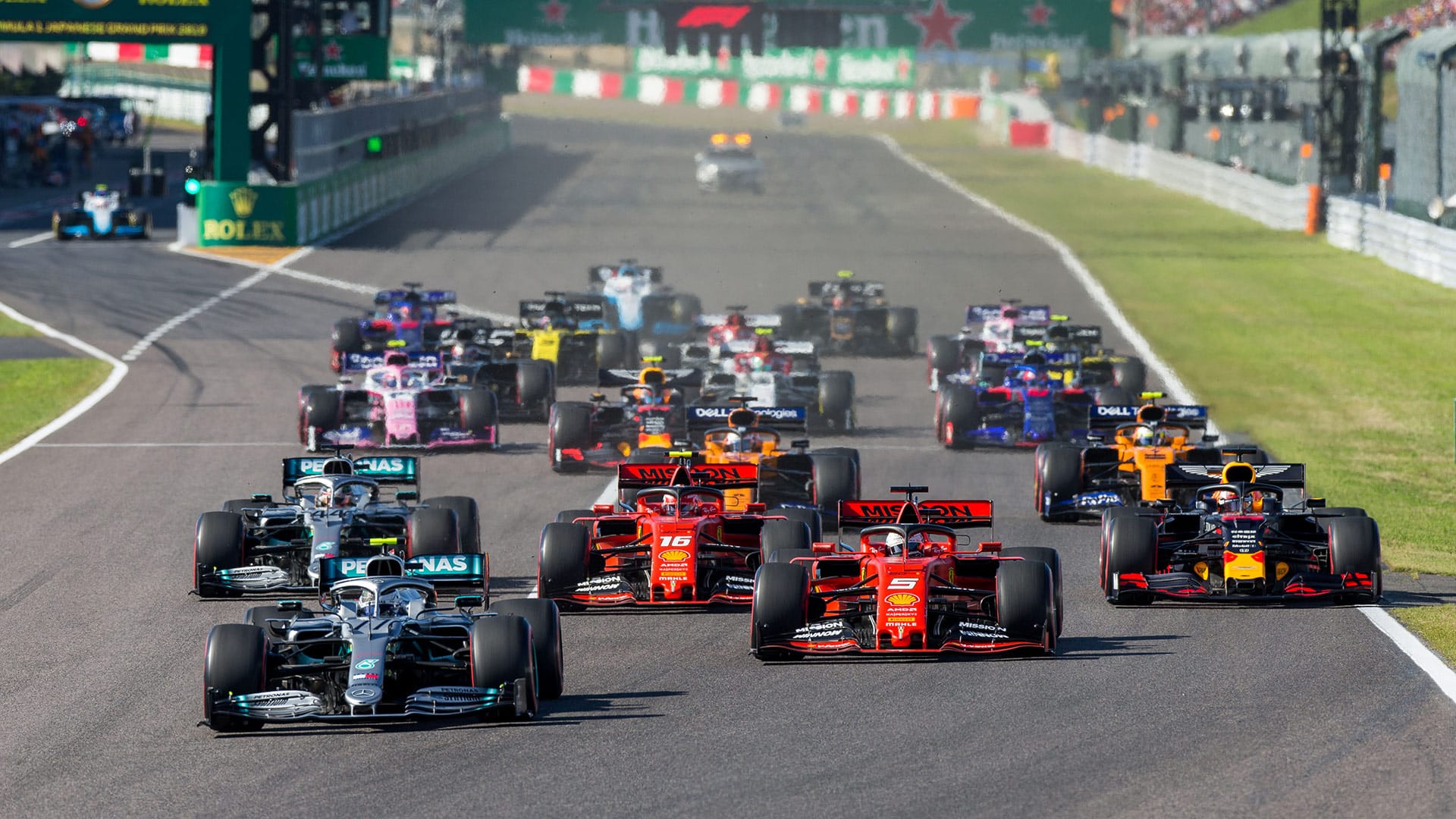

As 2020’s Formula 1 season drew to a close, the rather predictable news was that yet again that dispite a massively COVID disrupted season a German team (based in Britain) powered by a German engine (built in Britain) and led by a British driver (not based in Britain) had won 13 of the 17 races. Behind those stats suggesting the rather depressing scenario of domination rather than competition it’s still worth remembering that the 20 cars after driving nearly 2 hours for 200 miles racing at 5 times the speed an average family saloon still crossed the finishing line within a feet of each other.
Imagine that.. still that close even after the ten teams have spent their colossal annual budgets totalling around £2bn. Consider the variability in the system – tens of thousands staff based around the world with different ideas, different engines, different aerodynamics, different brakes, developed over several years racing on different tracks, different corners with thousands of ways to set a car up, different tyres types and tyre pressures, different pit stop strategies, different racing lines – the list goes on. And the biggest variable of all – the stroppy, egotistical and over-emotional driver eeking out every last inch of advantage out of the delicate £100m car on a narrow and twisting wet track at 200mph.
A hundredth of a second per lap is the difference between winning and losing – so F1 teams are as much in a development race as in the actual race itself. After the initial big improvements have been made – what next ? They have deep pockets to find the smallest performance increments that a faster car is all about the aggregation of marginal gains. Key to this is that the better teams analyse the mass of data collected about performance and environment, then put it in the hands of those geniuses who are able to make important design decisions.
So what’s this got to do with HR ? In the same way as F1, HR provides many of those small increments in improving the workforce for competitive advantage – not just to “win” once or twice, but to keep on winning time and time again. And in the same way, HR measures and tests what incremental benefits an employee (/ skill / training programme / absence policy / and so on) will / has made over the competition.
But HR are special, right ?
One of the most successful F1 teams has used analysis of data for every single aspect and movement to reduce the time taken for a pit stop (changing all four tyres on the car) reducing from over 5 seconds a few years ago to less than 2 seconds time and time again (next time you have a flat, time yourself) – orchestrating the most precise choreographed dance of twelve burly mechanics kitted out in helmets and heavy fire suits you could ever imagine. The same team was asked by British pharmaceutical giant, GlaxoSmithKline, to reduce time for their own pit stop – swapping over production lines for different toothpastes. The outcome – an increased production of 7 million tubes of toothpaste and an estimated £100m bottom line impact – using data.
No doubt the naysayers will be shaking their heads in exasperation pointing out that it might work for F1 and cleaner teeth (and marketing and sales and operations) but it’s just “not relevant to HR”. Orchestrating a workforce is completely different – more complex, more moving parts, more variability, and requires the human touch. Which in conclusion means gut feel is the only way to go.
The counter-argument – there are many technical challenges to overcome which may seem daunting to adopt an evidence based HR function (all of which are entirely solvable without the need for a £2bn annual budget) – but in the end, the biggest challenge to overcome is the right mind-set to embrace data as a key ally for decision making in the quest for those marginal gains to aggregate.
The aggregation of marginal gains is a concept made famous by British cycling coach Dave Brailsford, who lead the British cycling team to 10 gold medals at the 2008 Beijing Olympics. Prior to this, the team had not managed any significant wins.